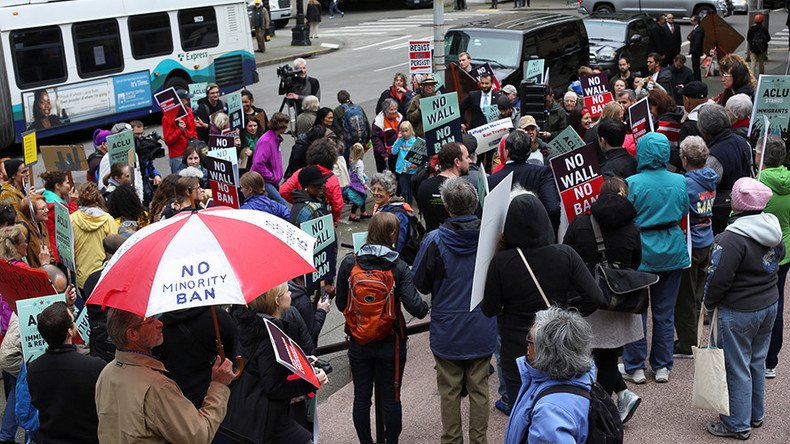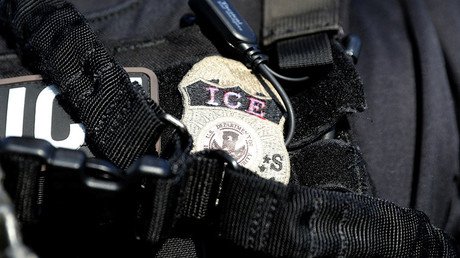Trump administration scores win on immigration enforcement in Texas

The Trump administration has chalked off a win Texas by persuading state and local authorities to perform the functions of federal immigration officials. The administration is seeking similar deals with other jurisdictions to crack down on sanctuary cities.
Under the negotiated agreement, which 18 Texas counties have signed on to, local agents in sheriff’s offices will be trained to check if the people they have in custody may be in violation of US immigration law, and then notify federal authorities of the Immigration and Customs Enforcement (ICE).
“There’s no doubt that arresting removable aliens in a jail is safer for the officers, safer for the community and even safer for the alien himself,” Acting ICE Director Tom Homan said.
Since last year, ICE has doubled the number of such agreements with counties in Texas, Reuters reported.
Yet the majority of Texas’ 254 counties do not have similar agreements with the federal government.
The sheriff of Harris County, the most populous county in the state and home to Houston, dropped out of the program earlier this year, saying it cost his office too much in terms of manpower and money, according to Reuters.
The agreements are part of the Trump administration’s crackdown on so-called sanctuary cities – places where local law enforcement do not have to report undocumented immigrants to federal authorities.
Earlier this month, US Attorney General Jeff Session warned the city of Philadelphia and every “sanctuary” jurisdiction over “the harm they are doing to their residents by refusing to cooperate with federal law enforcement and to re-think these policies.”
As ICE arrests under the Trump administration jumped 40 percent, federal officials maintain they are primarily targeting criminals among illegal immigrants, but many innocent people are reported to be caught in the crosshairs.
“Seventy-five percent of the people that the great men and women of ICE have taken into custody, 75% are criminals. The other 25% are not innocent; they are multiple deportees, they are people who have been fleeing from the law, they are fugitives. But they are not necessarily convicted criminals,” John Kelly, then-chief of the Department of Homeland Security, told CNN in May.
Kelly, who is now Trump’s chief of staff, has earned a reputation of being tough on illegal immigration.
The Trump administration said it would slash federal aid to jurisdictions which did not comply with federal law (8 U.S.C. 1373 ) which prohibits local and state governments from enacting laws or policies limiting communication with Immigration and ICE about “information regarding the immigration or citizenship status” of individuals.
However, enforcing Trump’s policy on sanctuary cities has proved a challenge for the DOJ in at least 10 jurisdictions across the country.
On July 20, a federal judge in San Francisco, California refused to reinstate the president’s executive order, effectively blocking its enforcement across the country.
District Court Judge William Orrick decided that the threat to withhold federal funds from cities which did not cooperate with federal immigration enforcement could be unconstitutional.
Last week, the top court in Massachusetts ruled that authorities have no right to hold an immigrant after they have been released for a crime.
ICE had requested a court order that illegal immigrants facing deportation be held for up to 48 hours after their initial cases were concluded.
The state’s Supreme Judicial Court ruled that it would amount to a new arrest of a person, which is not authorized by the laws of Massachusetts.














